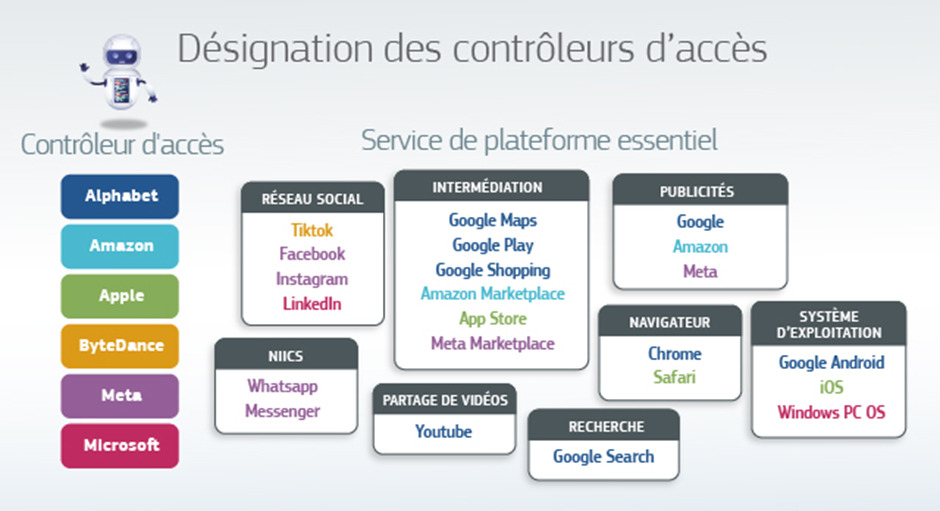From March 7, services used by more than 45 million people in Europe will have to comply with the Digital Markets Act (DMA), a new text which imposes strict rules on competition. Apple and Microsoft have obtained the right not to register iMessage and Bing as “gatekeepers”.
On March 7, 2024, the world of tech will experience a revolution in Europe.
Advertisement
The European Union will regulate 22 very popular services, including iOS, Android, Windows, the App Store, the Google Play Store, Messenger and WhatsApp. Its objective is to put an end to monopolies, by imposing the opening of platforms to competition, the end of default applications and much more flexible rules in application stores. This new regulation is called the DMA (Digital Markets Act) and aims to make large American and Chinese companies lose control.
For several months, Apple and Microsoft have been actively fighting to protect some of their services in Europe. The European Union has just proven them right: iMessage and Bing can continue to exist in their current forms.
iMessage and WhatsApp can remain competitors
If Apple had lost, iMessage could have become a universal messaging application, capable of chatting with WhatsApp and Messenger. The European Union wants to impose the creation of open messaging systems, with a protocol that allows the user of another software to be contacted from the application of their choice. A dark scenario for Apple which should have let its competitors access iMessage, even though it is an encrypted function integrated into its products.
To prevent the European Union from regulating iMessage, Apple has been repeating for several months that iMessage is not that popular in Europe (it must be used by more than 45 million people to be eligible for the DMA) and that it is not This is not software in its own right, but a function integrated into the SMS app. In other words, Apple says that no one uses iMessage voluntarily, which doesn't make it a service that users choose the iPhone for. The announcement of the arrival of RCS in the application, the successors of SMS, can also be seen as a political message to calm European enthusiasm.
Advertisement

On February 13, Bloomberg reports that the European Commission has ruled in favor of Apple. iMessage is not a “dominant” service and can therefore continue to exist under its own rules.
Obviously, this judgment does not exempt Apple from the DMA. The brand has already announced that European iPhones will soon allow you to change browsers, install application stores competing with the App Store, use a competitor to Apple Pay and pay without paying a deposit. commission to Apple. Obviously, the brand is doing everything to make this transition complicated by imposing new rules which could deteriorate the experience in Europe, to limit the impacts on its economic model.
Bing and Microsoft ads weigh little compared to Google
The other winner of the day is called Microsoft.
In its case, the web giant had to prove to European justice that it was only small compared to Google. Windows and LinkedIn will be affected by the DMA, but not Bing and its advertising activity. Microsoft can therefore continue to promote Bing rather than its competitors, without violating European regulations.
